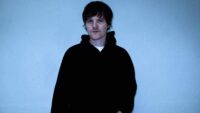Second Night Added!
Lorde
The Japanese House, Chanel Beads
October 05
Doors: 5:30PM / Show: 7:00PM
Sold OutGeneral Admission tickets are non-transferrable until 72 hours prior to the show time. Super Excellent Seats are non-transferrable and day-of-show pick up only. Prior to doors, Super Excellent Seats can be picked up at the box office. After doors, Super Excellent Seats can be picked up at the entrance located at 900 Maine Ave. Any tickets suspected of being purchased for the sole purpose of reselling can be cancelled at the discretion of The Anthem / Ticketmaster, and buyers may be denied future ticket purchases for I.M.P. shows. Opening acts, door times, and set times are always subject to change.
Lorde

Lorde is a Grammy-winning artist and cultural force, known for her genre-defying sound, introspective lyricism, and striking creative vision. Since her breakthrough with Pure Heroine in 2013, she has redefined the contours of modern pop—merging poetic storytelling with minimalist, emotionally resonant production. To date, she has amassed over 18 billion global streams and 18 million album sales worldwide.
In April 2025, she returned with What Was That, her first original release in four years. The single debuted to widespread acclaim and commercial success, hitting #1 on Spotify in the US — her first US #1 on the platform since “Royals.” It also landed at #3 in the UK and #5 globally, reaffirming her place at the forefront of pop music.
The Japanese House

“I know I shouldn’t need it but I want affection / I know I shouldn’t want it but I need attention,” sings Amber Bain – AKA UK musician The Japanese House – on “Touching Yourself”, a sad and sexy pop-leaning earworm about desire and heartbreak. Much of second album In the End It Always Does is contradictory like this: beginnings and endings, obsession and mundanity, falling in love and falling apart. It’s the perfect circular portrait of a relationship – with others, with herself, with an experience – hence the simple, circular album cover.
Written during a creative burst at the end of 2021, In the End It Always Does is primarily inspired by the events preceding it – including Bain’s first time moving to Margate, being in a throuple and the slow dissolution of those relationships. “[These two people] were together for six years and I met them and then we all fell in love at the same time – and then one of them left,” Bain’s remembers. “It was a ridiculously exciting start to a relationship. It was this high… And then suddenly I’m in this really domestic thing, and it’s not like there was other stuff going on – it was lockdown.”
The album came together just as that chapter in her life was falling apart, with each song almost acting as a snapshot in time. From the dizzying swell of album opener “Spot Dog” (a rework of the 101 Dalmatians theme, her exes favourite film) to the emotional gut punch of “Over There” (an ode to relinquishing the throuple) and the sugar-sweet pop hooks of “Sunshine Baby” (a bright, bittersweet acceptance of the end), so much of In the End It Always Does glitters and shimmers with the mixed feelings of finally letting go. “Love was never the issue. I never wasn’t in love,” says Bain. “But I realised I wasn’t in love with myself. We broke up when the album was done.”
Four years after her widely celebrated debut Good at Falling, this album sees Bain lean even further into the pop realm – with help from Matty Healy and George Daniel from The 1975, Katie Gavin from MUNA and Bon Iver’s Justin Vernon among others. Bain credits Gavin especially with injecting her with creative energy and inspiration throughout. On the lush, lullaby-like “Morning Pages”, Gavin sings, “She’ll do that thing where she sits at your feet / And it used to be so hot, now it’s just sweet.” For Bain, these words gradually became her own. “She wrote a verse really quickly and sent it back, classic Katie-style,” Bain remembers. “At the time I was like, she’s writing about her relationship, and… I guess it became mine.”
The album isn’t all heartbreak and lost love, though. On “Friends”, an upbeat, dance floor-ready song about threesomes, Bain sings in warped, auto tuned vocals, “Do I think about her more than you? Do I touch the way you want me to?” It was light relief to write about being one part of a three. “So many parts of being in a throuple is hilarious,” she says now, laughing. “It was one of the best things that’s ever happened to me. We’d go to a restaurant and be like ‘table for three’ and go to bed and be like ‘Good night, good night!’ It was very easy for me as a little unicorn to come in. And then suddenly I had two hot girlfriends.”
Elsewhere, on the layered, rhythmic pop track “Boyhood”, Bain turns the pen on herself, her voice floating over electronic beats and gentle guitar plucks: “I should have jumped when you told me to / I want to change but it’s nothing new.” What started as a song about how trauma becomes an inescapable part of a person soon became an ode to the complexities of gender and sexuality. “I started wondering about a boyhood that I never had,” says Bain today. “I’ve always wondered whether I’m trans or non-binary... I don’t know at this point. I say I’m gender non-comforming but that’s a bit of a mouthful. I don’t feel like a woman. That song is about all those things, and the overcoming of everything.”
One of the more emotional moments, however, appears on album closer “One for Sorrow, Two for Joni Jones”, a stripped-back track soaked in glimmering piano, named after Bain’s sausage dog, who is in turn named after Joni Mitchell. They had the vocal down in two takes, the first of which Bain was sobbing. “It’s the singular most intense experience I’ve had, in terms of writing music,” she remembers. “It was confirmation that my [former] relationship was definitely over. There’s that line ‘Sometimes I think life without you would lose its bones / But really I’ll still love walking in the park with my little Joni jones’ and it’s true… I am.” She’s come out the other end, but “I can’t listen to it a lot.”
The album also sees Bain work alongside producer and engineer Chloe Kraemer (Rex Orange County, Lava La Rue, Glass Animals), an experience she describes as “life changing” due to the unspoken, shared understanding between marginalised genders in a creative space. “I’d never worked with a woman or queer person [in that way] before,” Bain says. “It’s nice to have someone who completely understands your standpoint and shared experience. Also, I say ‘she’ in every song… so it’s important that someone understands that.”
It’s been nearly a decade since Bain’s break-out, in 2015, back when The Japanese House was rumoured to be everything from a Matty Healy side project to a mysterious unidentified figure shrouded in mystery and reverb. These days though, Bain’s sound and style is characteristically wide open, her vulnerabilities, thoughts and innermost feelings stitched into a tapestry of gorgeous, elevated pop music.
Chanel Beads

Chanel Beads — the project of New York-based musician Shane Lavers — announces his debut album, Your Day Will Come (out 4/19 on Jagjaguwar), and shares the lead single/video, “Idea June.” Your Day Will Come marks Lavers’ arrival as a new force in experimental music. Throughout the album, Lavers captures the many contradictions of modern existence and the strange infiniteness of the digital world. Though he incorporates the scrappy sonics of post-punk, the gripping sentimentality of pop tunes, and the spectral artifice of electronic music, he blurs lines through unconventional song structures that build into transcendental climaxes. As he intentionally prints his songs down to embed fried artifacts and ghostly remains, the resulting songs have a time-collapsing quality, both transitory and timeless.
Following previous single “Police Scanner,” “Idea June” features live bandmate Maya McGrory taking lead vocals to project Lavers’ lyrics. As McGrory sings in a voice that’s both earnest and digitally processed, it’s as though she’s speaking as a separate embodiment of Lavers. In under two minutes, the track of clunky acoustic guitar and gutting strings lands somewhere between detachment and kinship. The track becomes strangely affecting in its unfinished and liminal form, and Lavers, who is drawn to poor MP3 rips and transitional moments in DJ mixes, knows that these inexact musical artifacts evoke human imperfection.
Lavers first started writing Your Day Will Come during a period of reflection in November 2022. Stuck quarantining in his Brooklyn apartment, he found himself wanting to dig down into the core of who he truly was, apart from fleeting trends or rebounding cultural moments. So during that strange time between winter holidays, he started to write songs that wrestled with loss that rippled through his life, foundational to the way he sees himself and the way he relates to others. Many of the lyrics that remained were in response to both internal and external conflicts. They were words that he had to speak aloud to uncover the reality of the situation.
Throughout, Lavers weaves in contributions from McGrory and experimental violinist Zachary Paul, who offer their own layers of feeling that add to the huge emotionality of the album. Accustomed to performing in various bands when he lived in Seattle, Shane began to strip everything back when he started playing shows around New York, working to locate what felt worthy for him to perform. That mindset informed the writing of the record, in which Lavers forced himself to only keep what felt the most necessary to say. “There was a filter to this record,” Lavers says. “If it didn’t move me while performing, then I couldn’t make it into a song. As much as I wanted to make something that was cool to the touch, I had to make something that made me feel something.”
The idea of “fake jazz,” coined by Donald Fagen in a Steely Dan documentary, also informed Lavers’ production philosophy for Your Day Will Come. Admiring the phrase for making the distinction between a commercial, glossy version of what some would consider to be the “real” genre, he sought out to craft his own confusing distortions of his inspirations, like The Blue Nile, Prefab Sprout, and David Sylvian.
The title of Your Day Will Come is another double-sided trick. It could be read as a promise of the arrival of good karma, or it could be a reminder of one’s mortality, said out of spite. Yet as Lavers unpacks the haunting feelings of the past that he must release in order to move into his future, he reminds us that grief and hope might be closer than they seem to the naked eye.
Venue Information:
The Anthem
901 Wharf St SW
Washington, DC, 20024
theanthemdc.com
